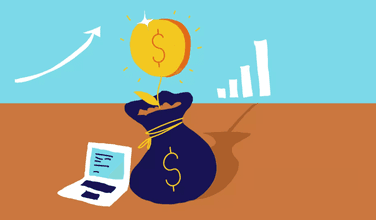- Osome Blog SG
- How To Save Electricity for Your Small Business in Singapore
How To Save Electricity for Your Small Business in Singapore
- Modified: 9 September 2024
- 5 min read
- Money Talk


Melissa Yeo
Business Writer
Melissa's unique storytelling expertise makes a difference for small business owners and entrepreneurs. Her background in content and social media spans eight years in various industries, including publishing, ecommerce and marketing. At Osome, she makes everything about running a business less intimidating. From specific accounting and bookkeeping advice to insights for company growth, Melissa's articles help you to take the next step on your entrepreneurship journey.
Energy is one of the highest costs of running a business. So it’s no surprise that the rising cost of energy and fuel is one of the most significant challenges for small businesses these days.
While the increase in energy prices will affect everyone, that does not mean that you can’t do anything to handle the effects. Here’s everything you need to know about rising energy costs and what you can do about it.
Why Is My Energy Bill Increasing?
Since Russia invaded Ukraine in February 2022, production in oil and gas has been disrupted. As a result, this affects countries dependent on gas imports, such as Singapore. Singapore relies on imported gas for approximately 95 per cent of its electricity needs.
Because of supply disruptions and high fuel prices, Singapore’s energy benchmarks have quadrupled. Singapore’s electricity tariff is worked out from four components. Fuel costs track the price of oil and reflect the cost of imported natural gas, making up half of the tariff. The remaining includes other costs related to activities such as transporting electricity through the grid, meter-reading, and maintenance of power plants.
Along with the rise in fuel costs, Singapore’s electricity tariff has risen.
If you require advice about your cash flow and taxes, our experienced accountants in Singapore can help.
How Does This Price Hike Affect My Small Business?
Local small and medium-sized enterprises (SMEs) depend on energy to run their businesses. With the global energy crunch raising electricity bills for SMEs by three to five times, profit margin might be significantly lower.
For instance, Jinjja Chicken’s Managing Director Mr Bernard Tay received a staggering S$10,654 bill for his December energy usage – more than double his November bill.
With energy prices unlikely to drop to original rates, one thing is clear – SMEs will face difficulties in this uncertain climate.
How Do I Lower My Energy Bill?
Fortunately, there are some easy ways to lower the cost of your gas and electricity, enabling you to have better cash flow.
Compare Different Energy Suppliers
According to Second Minister for Trade and Industry Tan See Leng, 2021’s market conditions resulted in six electricity retailers in Singapore throwing in the towel between October and December 2021. As such, approximately 11,000 business consumers purchase electricity directly from the wholesale market and are exposed to volatile prices.
Instead of buying from the wholesale market, perform due diligence by comparing price plans through the Open Electricity Market, and pick one that best suits your needs. Not all electricity retailers charge the same amount, so comparing the eight local electricity retailers can help you save costs:
- Geneco
- PacificLight Energy Pte Ltd
- Sunseap Energy Pte Ltd
- Sembcorp Power Pte Ltd
- Keppel Electric Pte Ltd
- Union Power Pte Ltd
- Tuas Power Supply Pte Ltd
- Senoko Energy Supply Pte Ltd
Choosing from several electricity retailers can be confusing, but here are some tips if it’s your first time comparing. Look out for kWh, which means kilowatt per hour – the amount of energy used per hour. Generally, Fixed Price Plans are more affordable. You can also use a cashback credit card to pay your electricity bill, getting you a monthly 1.7% to 5% rebate. While these cost savings may not seem a lot initially, remember that small savings add up to big money.
Conduct an Energy Audit
An energy audit aims to pick out energy-saving opportunities and energy efficiency problems in a home or business.
Consider installing advanced meters – also known as Advanced Metering Infrastructure (AMI) meters, or smart meters. These meters allow your electricity consumption to be calculated at half-hourly intervals, giving you an exact breakdown of what uses the most energy, when prices are excessive, and how much you spend. You can then use this data to evaluate where to use power efficiently.
Use Energy-saving Equipment
Energy-efficient (EE) equipment can help your business reduce energy usage and mitigate rising business costs. The Singapore government advocates using EE equipment by rolling out the new Energy Efficiency Grant (EEG) in Jun 2022. This grant supports SMEs in food manufacturing, food services, and retail sectors. They can expect up to 70 per cent support to adopt energy-efficient equipment in pre-approved equipment categories, such as:
- Air-Conditioner
- Cooking Hob
- Clothes Dryer
- LED Lighting
- Water Heater
- Refrigerator
This is at S$30,000 per company.
Keep Tabs on Broader Industry Trends
No matter what industry you are in, you should stay on top of industry trends to keep up with the times.
Traditionally, businesses and households have to buy energy at a regulated tariff from Temasek Holding’s SP Group. However, since the soft launch of the OEM in 2019, customers have had the option to purchase electricity from one of the eight electricity retailers in Singapore. This means consumers benefit from cheaper power prices in the open market, instead of solely relying on SP Group.
Turn off Appliances When Not in Use
Wherever possible, install LED lights, automatic power-off timers, and motion sensors to save electricity. You can also encourage your employees to switch off appliances after use by placing notes near their devices.
Phantom electricity can also cause a spike in your electricity bill. For the uninitiated, phantom electricity is also known as standby power, which refers to wasted energy when appliances are plugged in but not actively in use.
The simplest thing to reduce phantom electricity is to unplug appliances you are not using – including your laptop charger when it is not charging. Leaving cables plugged in when they are not connected to your device is a common way phantom electricity builds up.
What Is My Government Doing to Help Lower My Energy Bill?
On top of the EEG scheme, the Singapore government has also introduced the Energy Efficiency Fund (E2F), an umbrella scheme made up of five different grants to support businesses with industrial facilities to improve EE.
To break things down, here’s a comparison table of the two schemes:
EEG | E2F | |
|---|---|---|
| Funding support | Provides support based on 70% of qualifying costs. This amount is capped at S$30,000 per company, only for energy-efficient equipment in pre-approved categories. | Provides support of up to 70% of qualifying costs per project.While the grant amount may exceed S$30,000, this support is solely for manufacturing companies. Additionally, E2F grants awarded will differ based on the carbon abatement achieved. E2F projects with higher carbon abatement qualify for higher grant support. |
| Equipment support | Supports local SMEs in the food manufacturing, food services and retail sectors to adopt energy-efficient equipment in pre-approved categories, specifically LED lighting, air-conditioners, cooking hobs, refrigerators, water heaters and dryers. | Supports manufacturing companies with an annual group sales turnover no more than S$500 million to adopt energy-efficient equipment or technologies. This includes but is not limited to LED, air-conditioners, compressed air systems, motors, refrigeration systems, chilled water systems, boiler systems, ovens, furnaces, and heat recovery systems. |
Can I Apply for Both E2F and EEG at the Same Time?
Yes, you can! If your company meets the eligibility criteria of both schemes, you may apply for the grants. However, you cannot apply for both schemes for the same project.
Smart Accounting Brings Savings to Your Time and Energy
Your time and energy (pun intended!) matter, and smart accounting can pay off in the long run. It’s undoubtedly a difficult time for businesses, but you don’t have to do it alone. When you are trying to save money, every penny counts.
Let Osome’s professionals lend you a helping hand, so you can be sure you’re always on top of your accounting and compliance tasks.






